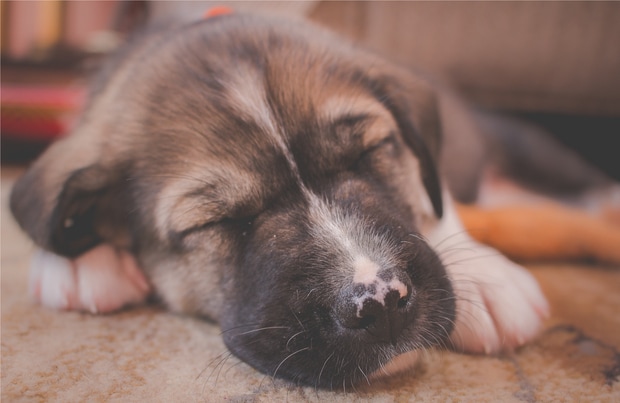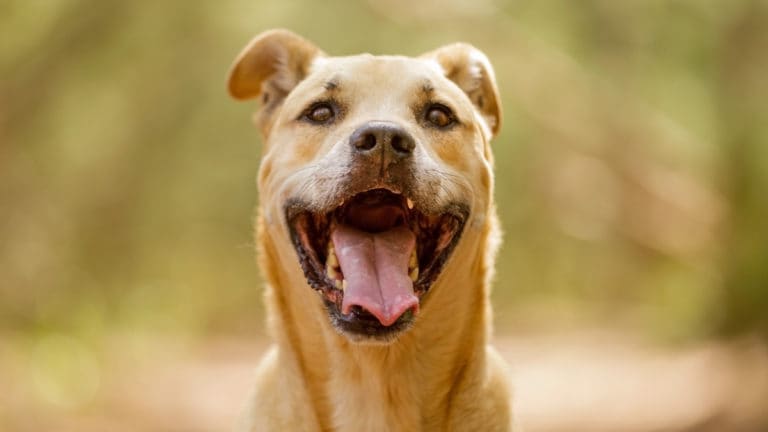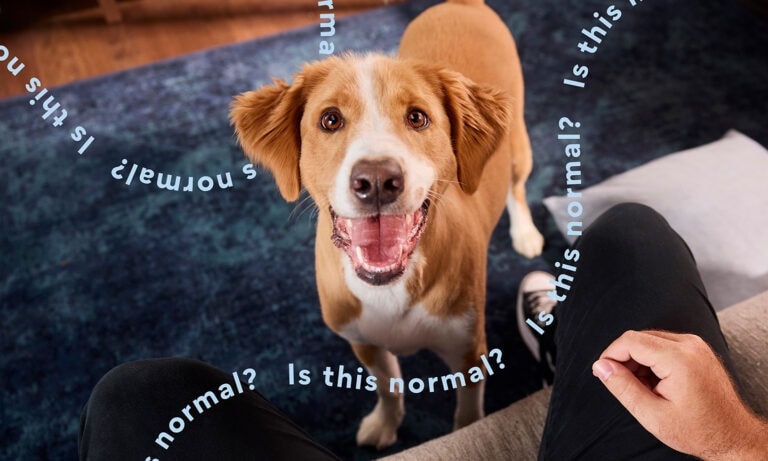Type “dog dreaming” into YouTube and you’ll get an adorable array of closed-eyed, twitching pooches. There’s a Dachshund furiously digging into a sofa and a Labrador Retriever seemingly chasing an imaginary tennis ball from a field in his subconscious into a very real wall.
When watching a dog move and murmur while asleep, it’s easy to assume the pet is fetching an illusory stick or herding sheep on some great pasture of the canine collective unconscious, but is this anthropomorphizing? Do dogs dream and, if so, what do dogs dream about?
Do Dogs Dream?
As it turns out, dogs do indeed dream, researchers have found, and they dream about what you would expect.
“The marker for dreams, in humans and all animals, is what we call REM sleep,” says Dr. Stanley Coren, author of several books on canine psychology, including “How Dogs Think: Understanding the Canine Mind.” If awoken during REM. sleep, people will usually report having just been in the midst of a vivid dream. Dogs also experience REM sleep, as discovered decades ago by a pioneer in the field of sleep study, says Coren.
Dr. William Dement, founder of the Sleep Research Center at Stanford University, studied narcolepsy in dogs in the 1970s. In the course of his research, he and his collaborators discovered that dogs have cycles of REM and non-REM sleep just like humans. Their brains’ electrical activity during sleep syncs with the signs of dreaming observed in the human mind (cats and mice also sink into REM sleep, later researchers found discovered).
The length of these sleep cycles depends on the size of the dog. Larger dogs have longer sleep cycles and longer dreams, says Coren. For example, a Great Dane’s cycle of REM and non-REM sleep lasts about 45 minutes with 10 minutes of dream-filled sleep, while a pug experiences a 12-minute cycles and dreams lasting a single minute. No one is sure why this is. “It’s one of those mysteries that keep neuroscientists up at night,” he says.
What Do Dogs Dream About?
Researchers have been able to deduce what dogs dream about by shutting down, via drug injection, the region of the brain that paralyses the muscles during sleep. This leaves the dog responding, with full physical movements, to whatever he or she is experiencing beneath the eyelids. The dreams seem to be extensions of the dog’s in-bred behavior. “Pointers point at dream birds,” says Coren, “and Dobermans bark at dream burglars.”
He says understanding canine dreaming is incomplete because “the easiest way to get your lab shut down is to be seen walking a dog into it.” Even if the research is mostly harmless to the subject, many scientific institutions won’t take the PR risk of studies involving dogs or cats, he says.
As for why dogs dream — what biological purpose it serves — Coren says science isn’t sure. But the theory is that, for all high-functioning animals, dreams help the mind process the information and experiences it absorbs by day. Dogs have good memories, when compared to other animals, and thus might need the cerebral retention that dreaming could provide.
And, of course, it has the side benefit of amusing humans who waste their time watching Internet videos at work.
Nick Keppler
Share:









